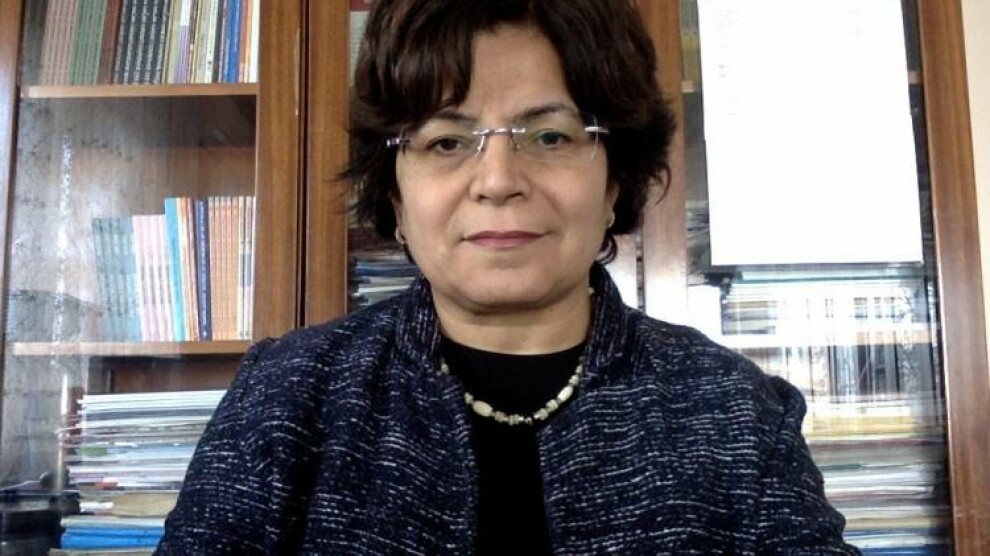Children grow up in prisons

780 children aged 0-6 have been held in prisons along with their mothers in Turkey, according to the latest data of the Ministry of Justice. Vesile Yüksel was also held in prison with her two daughters for months. Stating that the conditions in prison are not suitable for children, Vesile Yüksel says that her daughters will always remember those days.
MEDİNE MAMEDOĞLU
Amed- The number of people held in prisons in Turkey is increasing day by day after new prisons were opened. People of all ages are behind bars. Hundreds of children are also behind bars along with their mothers. Children, who grow up in prisons, are deprived of their rights such as their right to have education, regular nutrition, and health service, while their mothers are forced to raise their children behind bars. 780 children aged 0-6 have been held in prisons along with their mothers in Turkey, according to the latest data of the Ministry of Justice. Last year, a “judicial reform package” was prepared and some of the mothers, who were held in prison with their children, were released while female political prisoners were exempted. One of these women is Vesile Yüksel, held in prison for a year and 10 months in prison along with her two daughters. Vesile Yüksel was detained in Mardin province in 2017 on charges of “making propaganda of a (terrorist) organization”. Then she was sent to prison along with her two daughters (two and five years old). She was released in 2019 and she told us what she had faced in the prison.
“Something should be done for mothers and their children”
Stating that staying in prison with her children was very difficult, Vesile Yüksel said that her children could not access healthy food and therefore both of her daughters were constantly sick in prison. Vesile also said there were other children behind bars.
“Neither the medical center nor the canteen in prisons provides sufficient opportunities. My kids asked for candy from me but they weren’t given. Nothing was given, neither milk nor banana to my kids. My kids got sick in prison many times. The place of mothers and children is not prison. Something should be done for children behind bars now. Nobody should accept this situation. They (wardens) carried out night raids in prison. After being released, my daughters woke up at night in fear that they (wardens) would raid our ward again. Sometimes, they miss the women staying in our ward. They will never forget what they faced in prison. They will remember when they become adults. They don’t have the right to do this to any mothers and children. As a mother, I was in desperate straits for my daughters in prison.”
“The effects on children are irrecoverable”
Human Rights Association (IHD) Ankara Branch Central Executive Board member Nuray Çevirmen pointed out that prisons are not a suitable place for children. Stating that all the health, nutrition, learning, and socialization processes required for the development of children in prison were interrupted, Nuray Çevirmen said;
“The conditions in prisons are very hard for adults; the effects on children are irrecoverable. Unfortunately, there is no privacy between mothers and children in crowded wards. They (Children) don’t have regular sleep or nutrition routine. They cannot access education or playing field. Children are forced to stay in a closed place with adults all the time. All the health, nutrition, learning, and socialization processes required for the development of children in prison are interrupted. They are poor so they cannot buy anything from the canteen. Access to cleaning and hygiene supplies is very difficult. In high-security prisons, children have no contact with soil, plants, or animals. Shorty, children cannot stay in prisons.”
“Both mothers and children are subjected to rights violations”
Nuray Çevirmen underlined that the children thought they were punished when they were held in prisons, “Holding mothers having children is a right violation against both children and mothers. Children need to spend time with their peers to socialize and spend the learning process, not in a closed place. Improving prison conditions is not a solution. No matter how the conditions in prisons are, prisons are not suitable for children. Therefore, alternative solutions should be created. These alternative solutions should be discussed and found by NGOs, trade unions and experts on the subject and the parents who are the victims.”
